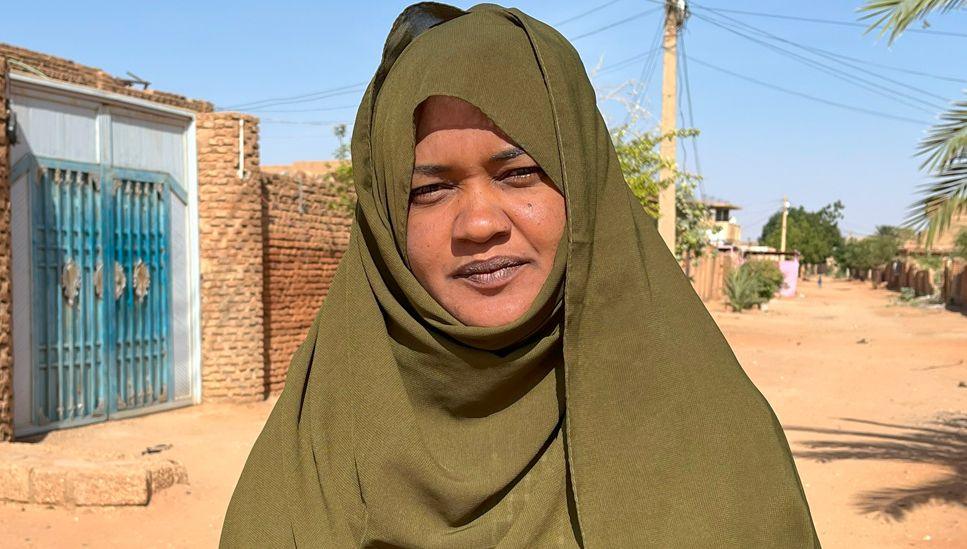'My family face constant threat of rape in Sudan war'
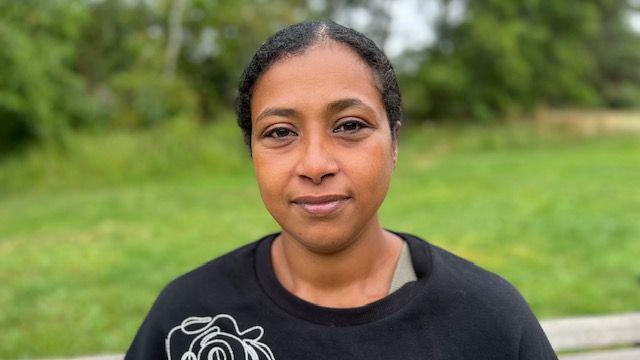
Habab Mohd said she feared for the safety of her family in Sudan
- Published
"It's not knowing when they're going to attack and, more importantly, just knowing that there is that threat of sexual violence, there is that threat of them losing their lives, losing their livelihood."
Habab Mohd, 40, from Oxford, says she fears for the safety of her sister and six nieces and nephews living in Sudan, a country that has been ravaged by war for more than two years.
Her family live near the capital, Khartoum.
When fighting intensified there earlier this year, her brother-in-law was left badly beaten and the family considered fleeing the region.
"There are a lot of kidnappings," Ms Mohd said. "Sexual violence is rough, they use it as a way to intimidate, to threaten and to scare the civilians."
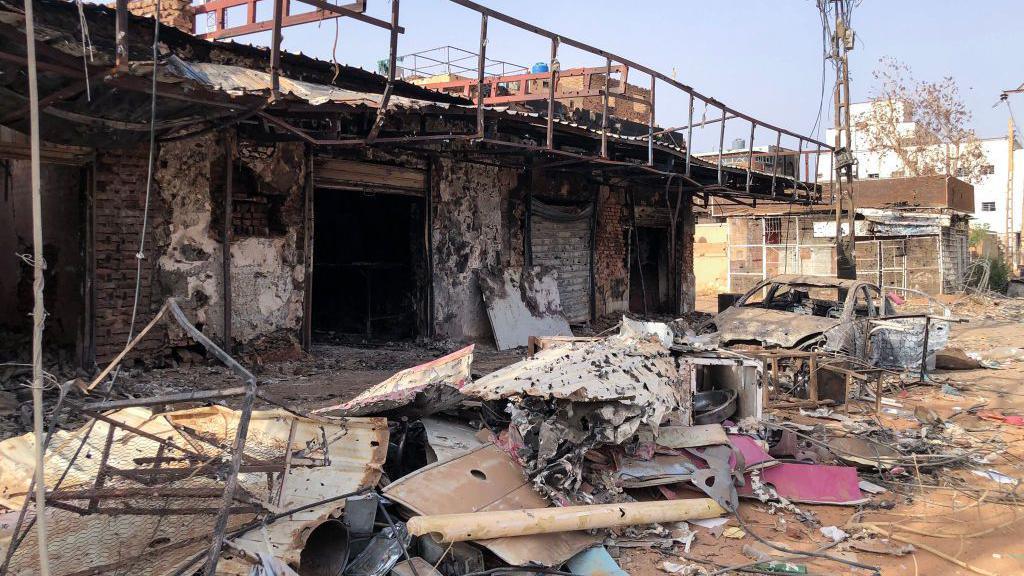
Air strikes and street battles have caused heavy destruction in Sudan
Sudan was plunged into a civil war in April 2023, after a vicious power struggle broke out between its army and paramilitary group the Rapid Support Forces (RSF).
It has led to a famine and claims of a genocide in the western Darfur region.
More than 150,000 people have died in the conflict across the country, and about 12 million have fled their homes in what the United Nations has called the world's largest humanitarian crisis.
Ms Mohd said: "I feel guilty because you're safe [in Oxford], your family's safe, you don't have to worry about things like sexual violence towards your children, whereas that's a constant threat for her."
'Sexual violence'
Civilians, especially women and girls, are bearing the brunt of the conflict, which has seen a rise in sexual violence.
The UN's Sudan envoy and spokesperson for Unicef, Sheldon Yett, said: "The stories of rape and abuse are blood curdling.
"We did a report and found children as young as one-years-old are being subject to sexual violence.
"We know this is a problem in every theatre of conflict but it's a particular problem in Sudan."
He added that safety was only part of the problem and that 80% of children were not in school, while only a quarter of hospitals were functioning due to ongoing bombardment.
With the limited humanitarian infrastructure and the continued targeting of civilians, Mr Yett said the situation facing children in Sudan was the worst he had ever seen.
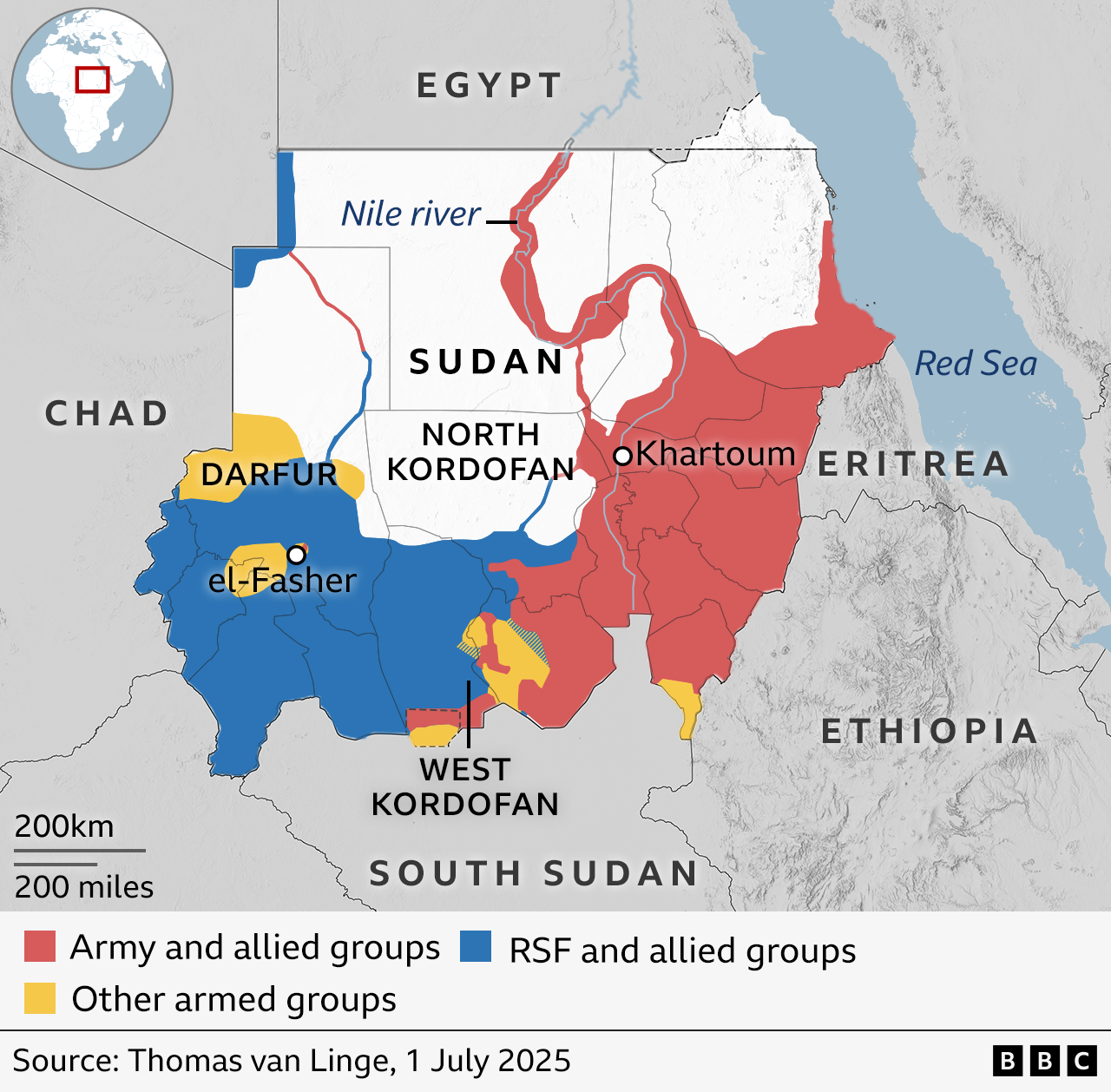
According to the Migration Observatory at the University of Oxford, there are around 4,000 people from the Sudanese community living in the south east of England.
Abubaker Elmubarak, from Oxford, said members of his extended family had been displaced internally, with others fleeing from the RSF to neighbouring Egypt, Oman, Saudi Arabia, Uganda, Qatar and Rwanda.
"They would get robbed, their cars and money taken. There was also a lot of violence and rape," said the 22-year-old.
On one occasion he said the RSF had held a gun to his young cousin's head.
He added that as well as facing harassment from the paramilitary group, much of the infrastructure, such as water and electricity, had been destroyed, making it difficult for people to return to school or work.
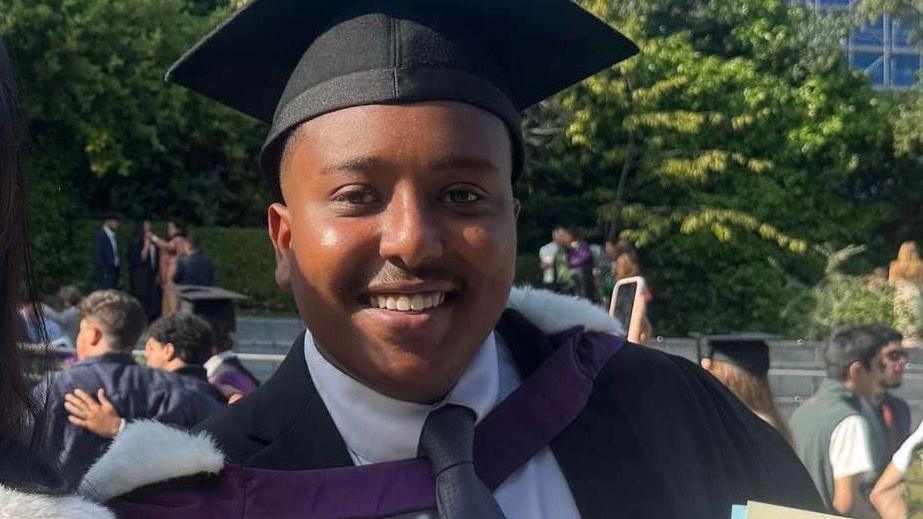
Abubaker Elmubarak said some of his relatives fled Sudan in April 2024
The former International Development Minister, Anneliese Dodds, resigned over the UK government's cuts to the aid budget in February.
Last month, the MP for Oxford East took part in a Westminster Hall debate on the crisis in Sudan in which she called for action to end the war.
"We must maintain pressure for a ceasefire," she said.
"We must put pressure on those who deny famine, who deny atrocities, who refuse to engage with those processes.
"We must ensure perpetrators are held to account and above all, we must act with urgency."
Responding to the latest assault in el-Fasher, foreign secretary David Lammy said it was "part of a pattern of deliberate violence and brutality against civilians".
He called for immediate humanitarian access and respect for international law.
A spokesperson for the RSF said it categorically denied allegations of sexual violence, theft or abuse against civilians.
The Sudanese army was approached for comment.
A Foreign, Commonwealth & Development Office spokesperson said: "The UK supported over one million people in Sudan and over 700,000 people in neighbouring countries in the last financial year.
"Including treating 98,000 children with severe malnutrition, and providing basic water services to over 744,000 people.
"In April, the Foreign Secretary announced an additional £120m in support for Sudan for this year.
"That comes on top of the £235m provided in funding last financial year to Sudan and neighbouring countries, making the UK the third largest humanitarian donor in Sudan."
Get in touch
Do you have a story BBC Oxfordshire should cover?
You can follow BBC Oxfordshire on Facebook, external, X (Twitter), external, or Instagram, external.
Related topics
- Published14 March
